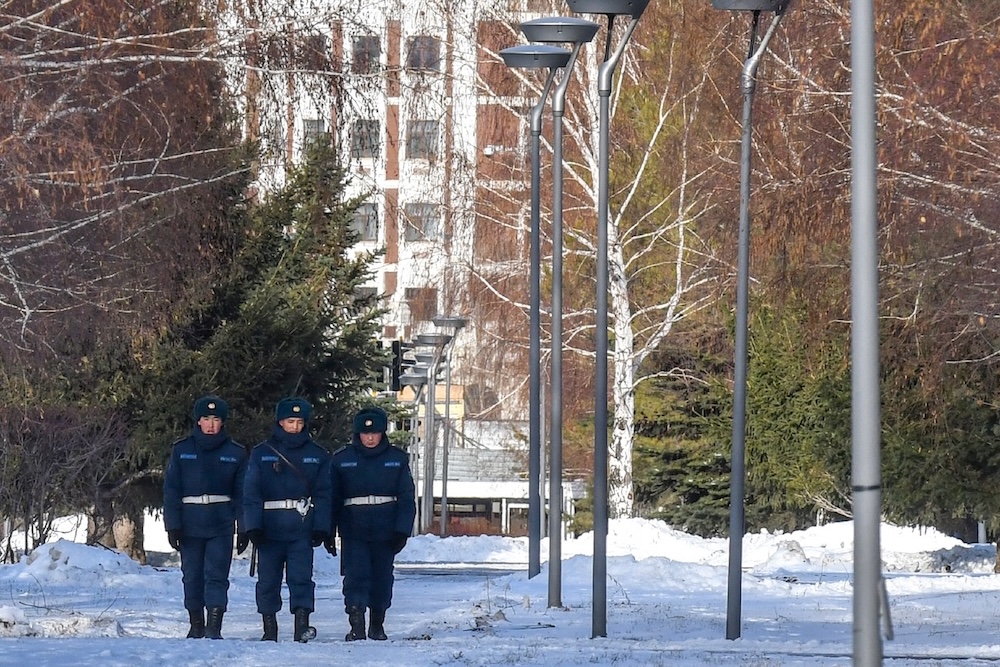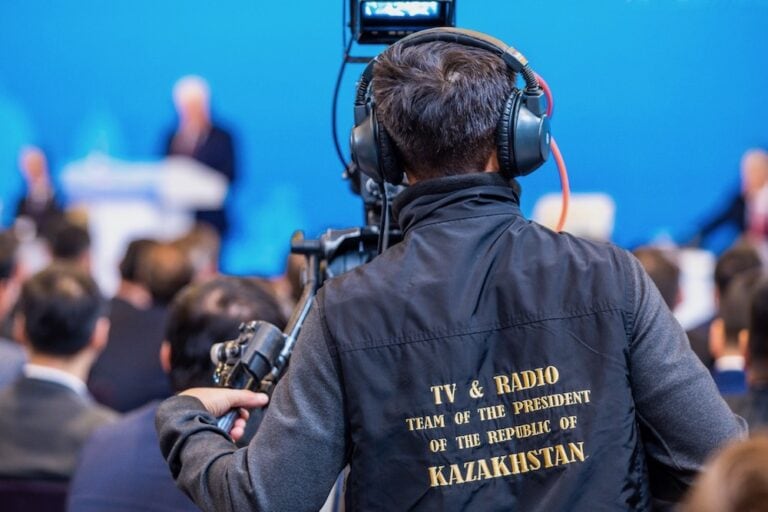Temirlan Yensebek - currently in pre-trial detention - was charged with ‘inciting inter-ethnic discord’ for his satirical content. He faces up to seven years in prison if convicted.
This statement was originally published on article19.org on 10 February 2025.
ARTICLE 19 urges Kazakh authorities to drop all charges against Temirlan Yensebek, a blogger accused of ‘inciting discord’ for his satirical content. His prosecution is part of a broader crackdown on civil society and escalating efforts to silence journalists and activists. Kazakhstan must end its attacks on public watchdogs and cease its censorship policies.
Temirlan Yensebek is the founder of the satirical site Qaznews24, which produces mock news to highlight the socio-political situation of Kazakhstan through irony and absurdity, often referencing current issues and challenges. On 17 January, the police arrested Yensebek following a raid on his home in Almaty. Subsequently the blogger was charged with ‘inciting inter-ethnic discord’ under article 174 of the Criminal Code. A court ordered a two month-long pre-trial detention. If convicted, Yensebek could face up to seven years’ imprisonment.
According to an official statement issued by the Almaty police department, Temirlan Yensebek shared content that contained ‘clear signs of incitement of ethnic discord,’ amounting to ‘an insult to representatives of an entire ethnic group’. The content in question refers to a post from 21 January 2024, about Tina Kandelaki, a Russian pro-Kremlin TV presenter, following her harsh remarks on alleged discrimination against the Russian language in Kazakhstan.
The police have not specified which part of the publication is being investigated under incitement to ethnic discord charges. However, Yensebek’s lawyer claims the prosecution was prompted by a song audible in the post, ‘Yo, orystar’ (‘Yo, Russians’), which contains offensive language about Russians.
Satire, freedom of expression, and protest under attack
This is not the first time the authorities have targeted Yensebek for his satirical work. In 2021, he was accused of ‘spreading knowingly false information’ after police publicly claimed that Qaznews24’s content was ‘disinforming the population and misleading citizens’. The joke in question satirically suggested granting former Kazakhstani president Nazarbayev the status of God. The charges were eventually dropped.
This recent wave of pressure on freedom of speech has not been limited to investigations into satirical content but has sent shockwaves through other fundamental pillars of public participation, such as the right to protest. The police have apprehended several activists expressing solidarity with Yensebek and demanding his release. At least six have been sentenced to fines or 15 days’ detention including for staging one-person protests.
ARTICLE 19 has repeatedly highlighted that Kazakhstan’s legal framework contains overly broad criminal provisions, unduly restricting speech that does not constitute direct incitement to violence. These restrictions violate international freedom of expression standards. We have previously warned that Kazakhstan prosecutes individuals publishing satire or caricature for spreading ‘disinformation’ in their publications. Yensebek is being charged under Article 174 of the Kazakh Criminal Code, which criminalises a broad range of offences, including incitement to ‘social, national, tribal, racial, class, or religious discord’. This provision is vague, overly broad, and open to abuse, enabling authorities to suppress freedom of speech under the pretext of combating ‘hate speech’. The penalties – steep fines or imprisonment – are disproportionate restrictions on free expression. As Article 174 fails to comply with international freedom of expression standards, it should be repealed.
ARTICLE 19 recalls that international law protects individuals, not abstract concepts such as religions or belief systems. International standards safeguard expression that may be offensive, disturbing, or shocking, and do not permit restrictions based solely on the ‘offence’ caused to an individual or group. Any restriction on freedom of expression must comply with international standards and meet the requirements of legality, legitimacy, necessity, and proportionality.
The right to freedom of expression extends to satire and jokes, even if they are in bad taste, trivial, shocking, or offensive. Satire is a form of artistic expression, which is naturally designed to provoke and agitate to amplify social commentary. It is key to assess satirical statements, which may contain elements of style perceived as ‘vulgar phrases’ or ‘offensive language’, in the context in which they are expressed. In any event, criminal prosecution for humour and critical commentary is a manifestly disproportionate measure that stifles debate on issues of public interest and chills civic engagement. Kazakhstan must amend its legislation to align with international standards, drop the charges against Yensebek, release him, and end the judicial harassment of journalists and activists.



